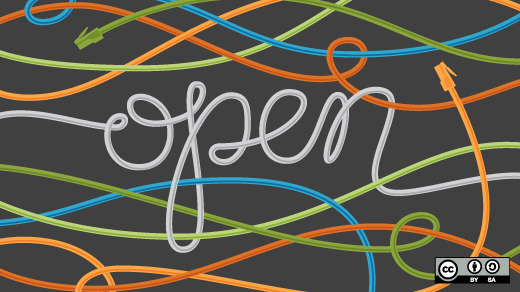Groundbreaking contributions to the global Internet are recognized every year in The Internet Hall of Fame by The Internet Society—a leading advocate for a free and open Internet, promoting the open development, evolution, and use of the Internet for the benefit of all people throughout the world.
The world’s most influential engineers, activists, innovators, and entrepreneurs are selected based on their work to help change the way we live and work though the design and potential of an open Internet.
From this year's 32 total inductees, I highlighted eight who are exceptional contributors to the open source movement. See more information about each of them on their official inductee pages and note some additional stats on the right-hand side.
Pioneers
those who were instrumental in the early design and development of the Internet
Stephen Wolff was responsible for the development of the NSFNET, the first open computer network in the U.S. for the support of research and higher education. This network connected supercomputing centers, regional research and education networks, federal agency networks, and international research and education networks, and eventually it became a major part of the Internet backbone.
Innovators
those who made outstanding technological, commercial, or policy advances and helped to expand the Internet’s reach
Marc Andreessen worked at University of Illinois at Urbana-Champaign's National Center for Supercomputing Applications (NCSA), where he became familiar with Tim Berners-Lee’s open standards for the World Wide Web. He and a co-worker, Eric Bina, created a user-friendly browser with integrated graphics that would work on a wide range of computers. The resulting code was the Mosaic Web browser. Andreessen and Bina left NCSA to found Netscape.
John Perry Barlow co-founded the Electronic Frontier Foundation (EFF) in 1990, a nonprofit based in the U.S. that provides legal aid to defend individuals and new technologies from what it considers to be misdirected legal threats. His writing about the impact of the Internet has influenced people’s thinking since the network’s earliest days. His essays for Wired, The New York Times, Communications of the ACM and other publications have been vital to the public discourse. His A Declaration of the Independence of Cyberspace argued that the cyberspace legal order should reflect the ethical deliberations of the community.
Richard Stallman launched the Free Software Movement in 1983 by announcing the plan to develop the GNU operating system, intended to be composed entirely of free (freedom-respecting) software. He and others began developing GNU in 1984. The last gap in GNU was filled in 1992 when Linus Torvalds liberated his kernel, Linux, resulting in the combined GNU/Linux operating system that is widely used today. In 1985, Dr. Stallman founded the Free Software Foundation and remains its president.
Aaron Swartz was a computer programming prodigy and activist who played an instrumental role in the campaign for a free and open Internet and used technology to fight social, corporate, and political injustices. In 2000, at the age of 14, he co-authored RSS version 1.0, and shortly thereafter joined a working group at the World Wide Web Consortium to help develop common data formats used on the World Wide Web. Swartz was one of the early architects of Creative Commons and a developer of the Internet Archives’ Open Library, a free book database and digital library open to the public.
Jimmy Wales founded Wikipedia, a free Internet encyclopedia to which anyone can contribute. Also the world’s largest encyclopedia, it has become the fifth-largest website in the world and its popularity has helped fuel a trend of collaboration and sharing among users. In 2003, Wales founded the Wikimedia Foundation, a nonprofit dedicated to encouraging the growth, development and distribution of free, multilingual content, and to providing the full content of these projects to the public free of charge.
Global Connectors
those from around the world who have made significant contributions to the global growth and use of the Internet
Karen Banks maintained an international gateway called 'GnFido' at GreenNet, a non profit Internet service provider (ISP) in London. Working with over 60 partners in Africa, South Asia, and Eastern Europe, the GnFido gateway used simple "store-and-forward" technology (fidonet and uucp) providing, in many cases, the only means of cheap, efficient electronic communications to thousands of individuals, NGOs, academics, researchers, university, and governmental departments. Banks is also a founding member of the Association for Progressive Communications (APC), an international network and non-profit organization dedicated to creating and sustaining a free and open Internet.
Teus Hagen became involved with CAcert, a community-driven certificate authority in 2004 that issues free key certificates to the public. Hagen helped to enable the growth and development of the CAcert community and free certificate technology. He joined the CAcert board in late 2007 and served as president in 2008. Hagen was recognized by NLUUG and Usenix for his open source contributions.
A note from Lynn St. Amour, Internet Society President and CEO:
This year’s inductees represent a group of people as diverse and dynamic as the Internet itself.
As some of the world’s leading thinkers, these individuals have pushed the boundaries of technological and social innovation to connect the world and make it a better place.
Whether they were instrumental in the Internet’s early design, expanding its global reach, or creating new innovations, we all benefit today from their dedication and foresight.




1 Comment